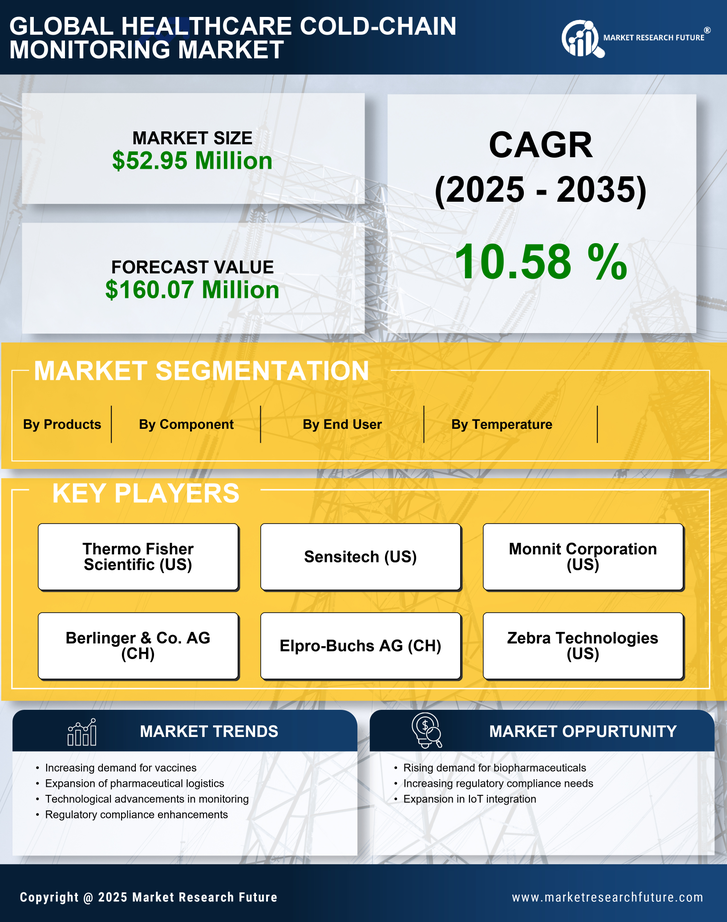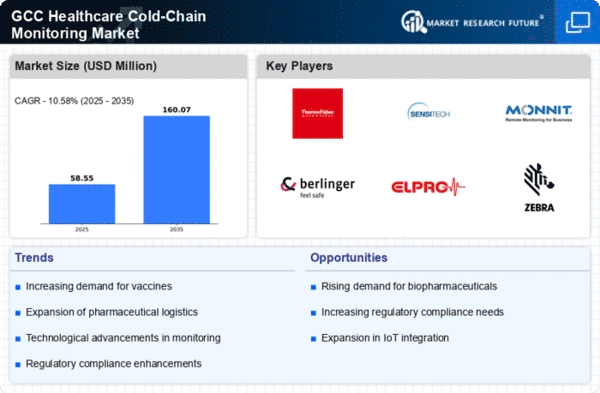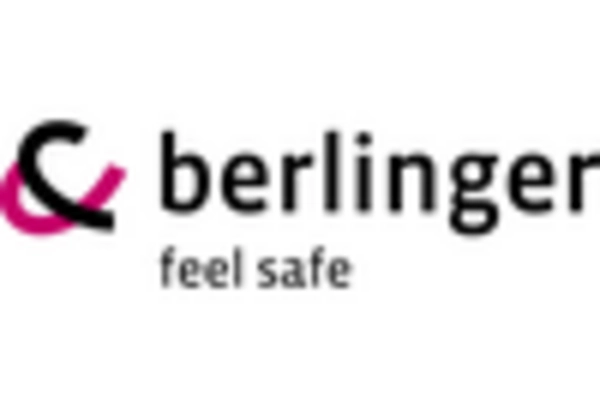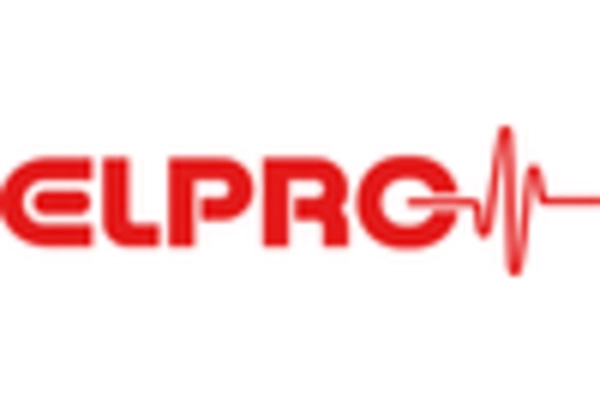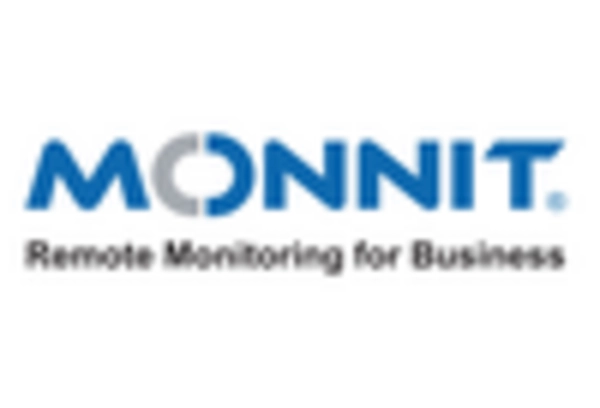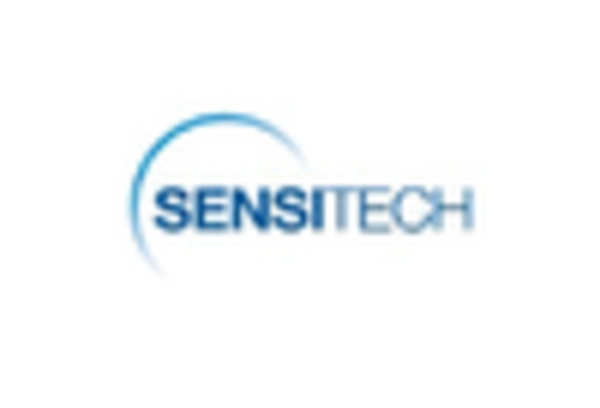Rising Demand for Biologics
The increasing demand for biologics in the healthcare sector is a crucial driver for the healthcare cold-chain-monitoring market. Biologics, which include vaccines, blood products, and gene therapies, require stringent temperature control during storage and transportation. In the GCC region, the biologics market is projected to grow at a CAGR of approximately 10% over the next few years. This growth necessitates robust cold-chain solutions to ensure product integrity and efficacy. As healthcare providers and pharmaceutical companies expand their biologics portfolios, the need for reliable cold-chain monitoring systems becomes paramount. The healthcare cold-chain-monitoring market is thus positioned to benefit significantly from this trend, as stakeholders seek to implement advanced technologies to maintain optimal conditions for sensitive products.
Growing Pharmaceutical Exports
The growth of pharmaceutical exports from the GCC region is a notable driver for the healthcare cold-chain-monitoring market. As GCC countries enhance their pharmaceutical manufacturing capabilities, the need for effective cold-chain solutions becomes critical to ensure compliance with international shipping standards. The healthcare cold-chain-monitoring market is likely to benefit from this trend, as exporters seek to maintain the quality and efficacy of temperature-sensitive products during transit. With the pharmaceutical export market projected to reach $10 billion by 2026, the demand for reliable cold-chain monitoring systems is expected to rise. This growth underscores the importance of implementing robust monitoring solutions to safeguard product integrity and meet regulatory requirements.
Increased Focus on Patient Safety
The heightened emphasis on patient safety within the GCC healthcare sector is a pivotal driver for the healthcare cold-chain-monitoring market. As healthcare providers strive to enhance patient outcomes, the integrity of temperature-sensitive products becomes a priority. The healthcare cold-chain monitoring market is likely to see growth. Hospitals and clinics are adopting advanced monitoring technologies to ensure that vaccines and other biologics are stored and transported under optimal conditions. Regulatory bodies are also reinforcing guidelines that mandate strict adherence to temperature controls, further driving the need for reliable cold-chain solutions. This focus on patient safety not only protects public health but also fosters trust in healthcare systems, thereby stimulating demand for effective cold-chain monitoring.
Expansion of Healthcare Infrastructure
The ongoing expansion of healthcare infrastructure in the GCC region serves as a significant driver for the healthcare cold-chain-monitoring market. Governments are investing heavily in healthcare facilities, including hospitals and clinics, to enhance service delivery. This expansion is accompanied by an increased focus on the safe handling of temperature-sensitive products. For instance, the GCC healthcare market is expected to reach a value of $104 billion by 2025, which will likely lead to a higher demand for cold-chain solutions. As new healthcare facilities are established, the need for effective cold-chain monitoring systems to ensure compliance with safety standards and maintain product quality becomes increasingly critical. Consequently, this infrastructure growth is anticipated to propel the healthcare cold-chain-monitoring market forward.
Technological Innovations in Monitoring Systems
Technological innovations are transforming the healthcare cold-chain-monitoring market, particularly in the GCC region. The advent of IoT-enabled devices and real-time monitoring systems allows for enhanced tracking of temperature-sensitive products throughout the supply chain. These innovations facilitate immediate alerts in case of temperature deviations, thereby minimizing the risk of product spoilage. The market for cold-chain monitoring solutions is projected to grow significantly, with estimates suggesting a CAGR of around 15% over the next few years. As healthcare providers increasingly adopt these advanced technologies, the healthcare cold-chain-monitoring market is expected to expand, driven by the need for efficiency and reliability in managing temperature-sensitive products.
